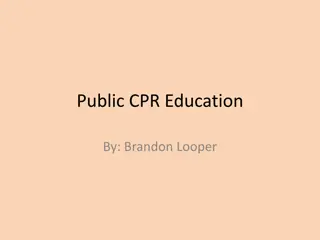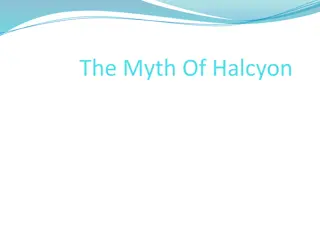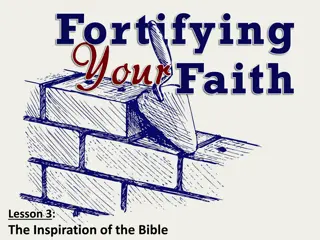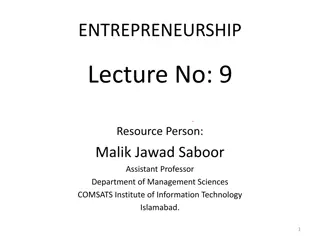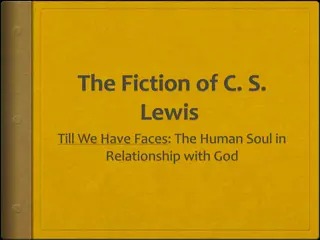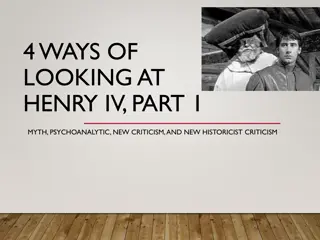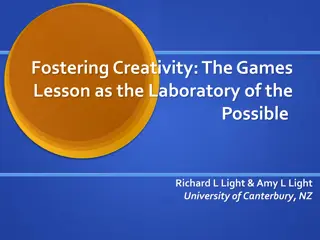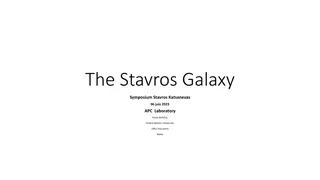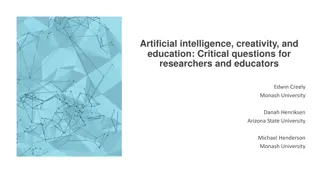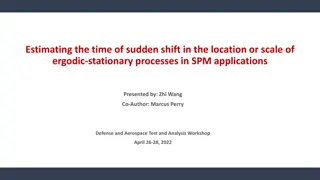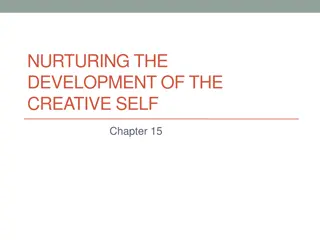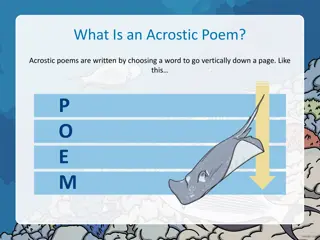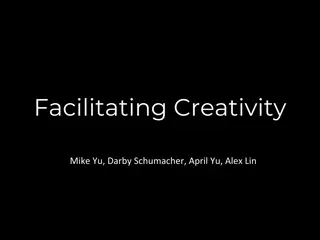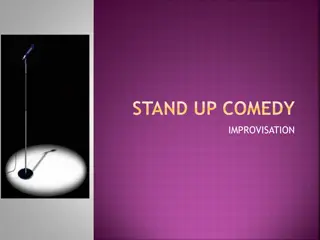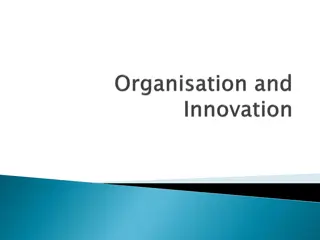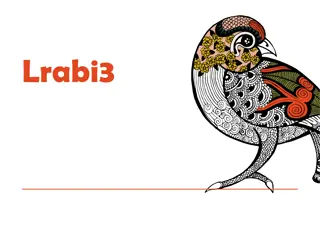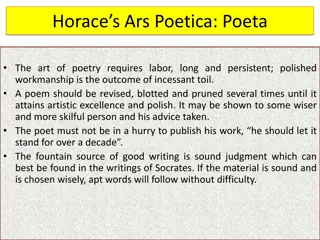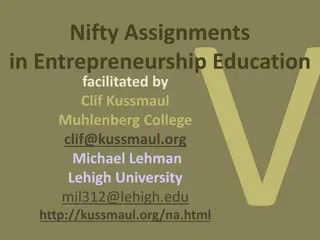Insights and Creativity: Exploring the Myth of Sudden Inspiration
Explore various instances of sudden insights throughout history, from Coleridge's Kubla Khan to Archimedes' Eureka moment. Delve into different perspectives on the nature of sudden insights, including divine inspiration, unconscious processes, and the role of business-like usual thinking in fostering creative breakthroughs.
Download Presentation

Please find below an Image/Link to download the presentation.
The content on the website is provided AS IS for your information and personal use only. It may not be sold, licensed, or shared on other websites without obtaining consent from the author. Download presentation by click this link. If you encounter any issues during the download, it is possible that the publisher has removed the file from their server.
E N D
Presentation Transcript
The Myth of Sudden Insight Columbia University Scholars Program Distinguished Speaker Series January 25, 2018 Barbara Gail Montero
Samuel Taylor Coleridges Kubla Khan In Xanadu did Kubla Khan A stately pleasure-dome decree: Where Alph, the sacred river, ran Through caverns measureless to man Down to a sunless sea. So twice five miles of fertile ground With walls and towers were girdled round; And there were gardens bright with sinuous rills, Where blossomed many an incense-bearing tree; And here were forests ancient as the hills, Enfolding sunny spots of greenery.
Not all critics loved it: "Mr. Coleridge can write better nonsense verse than any man in English (William Hazlitt 1816). But it is a perennial favorite, not least of all for how it purportedly came about: From the 1816 preface: No less than two or three hundred lines came to me in a profound sleep and that on awakening I instantly began to write down the lines until disturbed by a person on business from Porlock. John Livingston Lowes: "If there is any man in the history of literature who should be hanged, drawn, and quartered, it is the man on business from Porlock.
Friedrich August Kekul s 1865 discovery of the ring structure for benzene came to him in a flash.
Mozarts letter of 1815: The whole, though it be long, stands almost finished and complete in my mind so that I can survey it, like a fine picture or a beautiful statue, at a glance . . . and it rarely differs on paper from what it was in my imagination.
Archimedes suddenly realizing that an alloyed crown would displace more water than one of pure gold jumped out of his bath and ran naked through the streets shouting, Eureka!
Four possible explanations of sudden insight 1. Passivity: sudden insights rare, highly significant cognitive achievements that have no or very little basis in prior reasoning; brought about by either divine inspiration or unconscious processes. 2. Business-as-usual: so-called sudden insights are nothing more than regular thinking 3. Triviality: sudden insights are different from well-worked out reasoning, yet are trivial 4. Integration: sudden insight occurs after business-like-usual thinking enables a sudden integration of ideas
Passivity: The ancient Greek conception of poets as conduits for the words of the gods. Opening lines of the Odyssey: Sing in me, Muse, and through me tell the story. In the dialogue Ion, Socrates claims that beautiful poems are not human, not even from human beings, but are divine and are from gods; that poets are nothing but representatives of the gods, possessed by whoever possesses them (535e). Peter Kivy (2001) explains Plato s view: bright ideas are not generated by acts of will through the application of some method, bright ideas just happen to people . . . [rather like an] infectious disease one succumbs to.
In the nineteenth century, James Russell Lowells comment: talent is that which is in a man s power; genius is that in whose power a man is. In the present century: When human beings are acting at their best in great feats of athleticism or in the composition of the finest poetry, in the activities of life in the everyday world or heroism on the battlefield [they often feel as if their actions are] drawn out of them, as if they were called to act in the way they did (Hubert Dreyfus and Sean Dorrance Kelly 2011)
Does this happen? Apparent evidence for the existence of the passive account comes from the examples. However, if you dig a bit, you find that the support for these stories is shaky.
To Socrates, Ion responds: [although your reasoning appears unassailable] I doubt whether you will ever have eloquence enough to persuade me that I praise Homer only when I am mad and possessed (536d). This line is sometimes cut when the dialog is anthologized (for example, in Bychkov and Sheppard 2010). But it s important.
In the 1816 preface to Kubla Khan, Coleridge claims that the poem came to him during a profound sleep, but in an earlier manuscript he claims that the poem was composed in a sort of Reverie. Furthermore, the differences between the 1816 publication and the earlier manuscript indicate that the poem was revised before publication.
And it didnt arise out of nowhere: Coleridge had read a passage from a 1626 work that began, In Xamdu did Cublai Can build a stately Palace . . . and in the middest thereof a sumptuous house of pleasure. Coleridge s poem begins, In Xanadu did Kubka Khan/ A stately pleasure-dome decree.
Kekul in his breakthrough 1865 paper claims that his theory was formed in 1858, four years prior to the dream. And the ring structure had been hypothesized for other chemicals. This Photo by Unknown Author is licensed under CC BY-NC-SA
Mozarts letter, in which he claims to see in his mind entire compositions finished at a glance and all at once is now dismissed as a forgery. His actual letters make no comments about sudden insights (Spaethling 2000). His sister documented that he would spend endless hours mentally composing his music. And Tyson s (1987) studies of the autograph scores reveal that some manuscripts contain numerous revisions.
Archimedes Eureka!? The tale is first described by the Roman writer Vitruvius nearly 200 years after the event was said to have taken place. Numerous scientists, including Galileo, have thought it much more likely that Archimedes would have evaluated the crown by using the law of buoyancy (which involves measuring the weight of the displaced water) than by measuring the volume of the displaced water (Hidetaka 2010). Of course, the bath would be a good place to discover the law of buoyancy.
The baths of ancient Greece were not good places to await the lonely aha. Plutarch (c.75) records that Archimedes used to trace geometrical figures in the ashes of the fire and diagrams in the oil on his body.
Business Business- -as as- -usual Proposed by Robert Weisberg (1986) and supported by Simon Blackburn (2014). usual The business-as-usual model gets supports from debunking the sudden insight stories. Albert Rothenberg (1990) spent thirty-five years of conducting and analyzing interviews with creative individuals, scrutinizing manuscripts and drafts of creative works. He finds little support for the idea that sudden insights play a significant role in the creative process and concludes that the final work is the result of direct, intense, and intentional effort on the creator s part. We never know where our ideas come from; introspection isn t good at this.
But why the stories? We assume that those who act effortlessly must have plenty of resources in reserve for when bigger challenges arise. Graphic artist Dan Fallon s told illustrative story: I remember one very large, pressure-filled creative presentation. On this day, the long meeting was not going well; all our well thought out ideas were falling flat. The Creative Director then began an impromptu presentation by sketching out his concept on a small white paper napkin. When he was finished, everyone was elated. The meeting, the business, and the relationship, were all saved with a scribble on a lunch napkin. I'll never remember what was on that napkin, nobody will but I'll never forget the smiling, back-slapping clients loading into the elevator, fully assured of our competence and creative ability . . .
Triviality Account Variation of Business-as- usual. Wordsworth, (1862): all good poetry is the spontaneous overflow of powerful feelings . . . [however,] poems to which any value can be attached, were never produced on any variety of subjects but by a man, who being possessed of more than usual organic sensibility, had also thought long and deeply. I. Ideas that arrive via sudden insights are equally valuable as ideas that arrive via methodological plodding. 2. The ideas that arise via sudden insights are relatively Insignificant compared to those that arrive via methodological plodding .
That out-of-the-blue insights are relatively insignificant in creative endeavors is suggested by science fiction writer Ray Bradbury s method of composition (1990).
Undergraduates sometimes come up with views that in essence are the same as those of philosophy s greats. Even children do this. It s the working out of the idea that matters
Mikhail Tal looking for a better move Consider intuition in chess. The grandmaster looks at the board and immediately zeros in on a few candidate moves. If you see a good move, look for a better one.
Integration Account: the experience of sudden insight occurs after business-as-usual enables a sudden integration of ideas The physicist Freeman Dyson talks of having a Eureka experience in the middle of Kansas, while on a Greyhound bus from California to Princeton: Suddenly the whole picture [of a solution to a problem with quantum electrodynamics] became clear (quoted in Csikzentmihalyi 1996, p. 42).
Csikszentmihalyi (1996) interviewed ninety-one highly creative individuals. Most though not all, recall with great intensity and precision a particular moment when some major problem crystallized in their minds. But does this mean that the sudden insight involved a major cognitive achievement? Or is it a straw-that-broke-the-camel s-back phenomenon?
With Sherlock Holmes, the picture emerges slowly.
The Reigate Puzzle A torn piece of paper found in the dead man s hand The light dawns gradually over the whole (Wittgenstein 1969).
Reese Witherspoon in 2001 movie Legally Blond Contrast Holmes with Elle s realization. How did she figure out that Chutney was the murderer? The rules of haircuts are simple and finite.
Concluding Remarks I m skeptical of the passivity account: sudden insights as rare, highly significant cognitive achievements that have no or very little basis in prior reasoning; brought about by either divine inspiration or unconscious processes. Business-as-usual accounts for some sudden insights as nothing more than regular thinking Triviality accounts for some sudden insights as different from well- worked out reasoning, yet are trivial Integration accounts for others as occurring after business-like-usual enables a sudden integration of ideas.
But what about improvisation? Isnt there sudden insight there? To a degree, but one wants to avoid creating the same type of thing over and over again. In response to Lavinia s request, let s take a look. . . Twyla Tharp, meticulously sifts through her video-taped improv sessions: [i]f I find thirty seconds of movement out of three hours, I m happy;
Finally, I agree with Tharp who says that in the battle over some transcendent, inexplicable Dionysian act of inspiration . . . [versus] hard work, I come down on the side of hard work.


